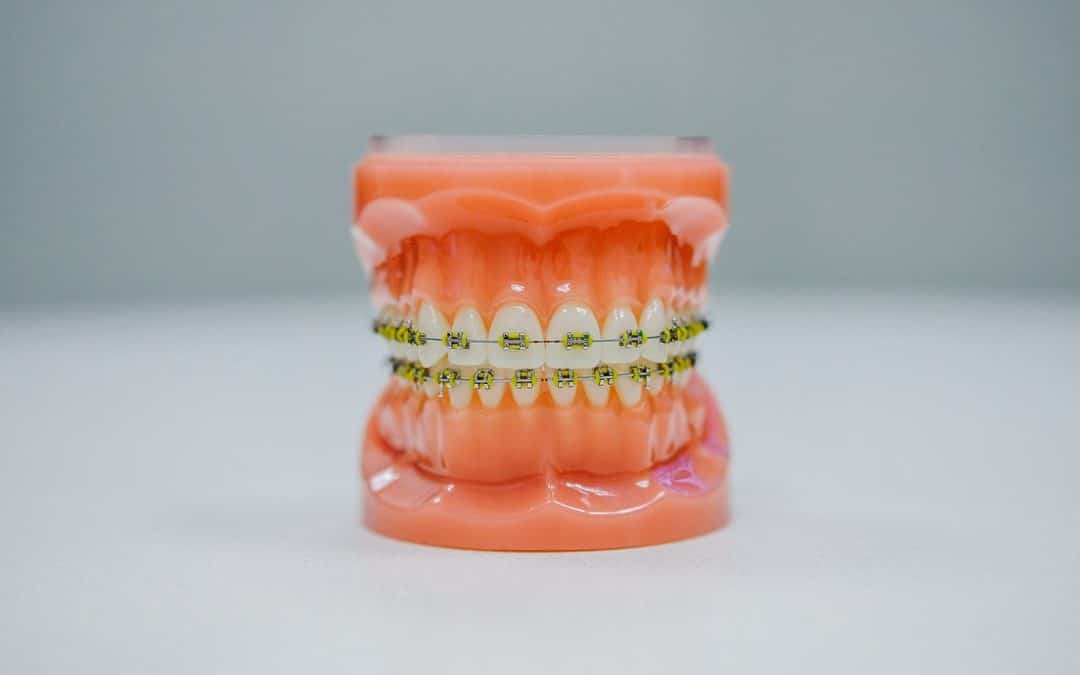It’s a question orthodontists hear all the time, and it’s got a simple answer: Am I too old for braces?
The answer is a resounding no!
This is backed up by the American Association of Orthodontists. They recently found that more adults than kids are having orthodontic treatments.
Getting braces can bring some major benefits, including some you might never have thought of. Let’s examine 5 reasons why you should get braces after 50.
1. Improve Your Appearance
The pandemic has meant a level of exposure we never knew was possible!
Endless Zoom meetings mean that we can no longer hide in the shadows. Our faces are right there in front of our cameras. It’s impossible to hide our smiles, however much we would like to.
Maybe this has made you decide that it’s time to take action! Maybe you don’t have major issues to correct, just the odd crooked tooth here or there. Or maybe it’s time to sort out some serious overcrowding issues or underbite/overbite problems.
Modern braces for older adults mean that you don’t have to endure months of railroad tracks! Clear braces such as Invisalign® have revolutionized the experience of wearing braces. Not only are they virtually invisible, but they’re also comfortable and easy to keep clean.
2. Boost Your Self Confidence
If you’ve been afraid to smile in the past, it’s time to put that right.
Once you’ve achieved straight teeth and a healthy smile, you’ll want to show it off all day long. There could even be benefits for your business.
A recent study found that more than two-thirds of people find people who smile more trustworthy and approachable. For 76% of people, a smile is the first physical trait they notice about a new acquaintance.
Rather than wearing other expressions as a mask, check out your braces options to see how you can achieve a smile you can be proud of.
3. Banish Bad Breath
One of the benefits of braces that people often overlook is improved breath.
Bad breath can be caused by a number of factors. One common cause is food getting stuck in between the teeth. If your teeth are misaligned, in spite of your best efforts it can be very difficult to get them clean.
Also, food caught in between the teeth becomes a breeding ground for bacteria. This will increase the likelihood of developing cavities which can lead to infections and more bad breath.
When you get braces, your teeth gradually move into more regular positions. This makes brushing and flossing much easier. You’ll be able to remove all those food remnants and benefit from improvements in your breath and your oral health.
4. Improve Oral and General Health
Having crooked teeth can lead to myriad oral health concerns.
First, it’s more difficult to chew food properly with poorly aligned teeth. You may find that chewing food becomes painful. This can lead to not chewing food well, which snowballs into other digestive issues.
Crooked teeth are also much harder to keep clean. As well as being bad for our teeth, it’s also bad news for our gums. Bacteria can build up around the teeth, causing plaque.
In time, this can eat away at the gums and teeth. Deep pockets can develop, which is a sign of periodontitis. If you don’t get good treatment, this can lead to tooth loss.
When your teeth are crooked, they can also wear unevenly. This puts extra pressure on the gums and the muscles in your jaw. A common side effect is temporomandibular joint disorder (TMJD).
Can Straight Teeth Improve Heart Health?
Straight teeth don’t impact heart health themselves.
While more research is needed, gum disease and poor dental health have been linked with heart disease and damage to heart valves. When you have straight teeth, it’s much easier to keep them clean and keep bacteria levels at bay.
5. Put Right a Bad Bite
A bad bite is far more than just an inconvenience. As well as feeling strange, it makes chewing food and even speaking more difficult. It can also cause your teeth to wear unevenly.
You may have had braces in the past or never had a problem with your bite. But as time goes by, these issues can develop. Our teeth can also move out of alignment again.
A bad bite can also often lead to problems with the temporomandibular joint (TMJ). This joint is located at the back of the jaw, close to the ear. Orthodontic issues can put a lot of strain on the joint.
This include:
- Overbite
- Underbite
- Teeth grinding and clenching
TMJ disorders can cause painful headaches, earaches, neck and shoulder pain, and even swelling in the face. When you get braces, the pressure on the TMJ is gradually reduced. Some patients find that these symptoms disappear altogether.
Who Is a Good Candidate for Braces After 50?
If you’re unhappy with the appearance of your teeth or they’re causing your discomfort, don’t hesitate to talk to an orthodontist.
When they examine your teeth for suitability, they’ll be checking your overall oral health. They’ll look at the condition of your teeth, your gums, and your jawbone. If they are all in reasonably good condition, you should be able to proceed.
If your orthodontist uncovers an issue, such as gum disease, that doesn’t mean it’s the end of the road. After undergoing a course of treatment it may still be possible for you to get braces.
Are You Ready to Get Braces?
When you get braces after 50, you embark on a new journey.
You can now smile with confidence, knowing your teeth won’t let you down. You also know that you’ve done your oral health a massive favor. You can easily keep them clean, reducing your risk of tooth decay and gum disease.
Don’t let your age hold you back from getting a healthy smile. At Sing Orthodontics, we’ve got the right braces for you whatever your age. Our award-winning team is waiting to help you achieve your smile goals.
Call us at 512-883-9306 or schedule a virtual consultation today!






